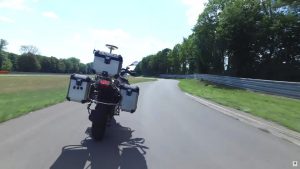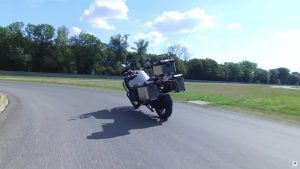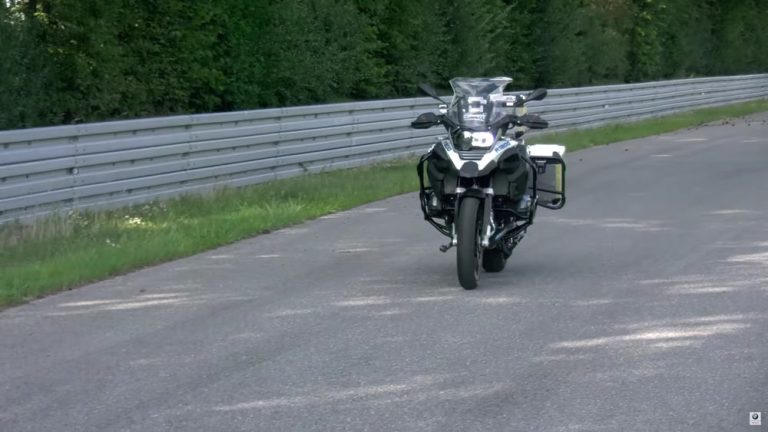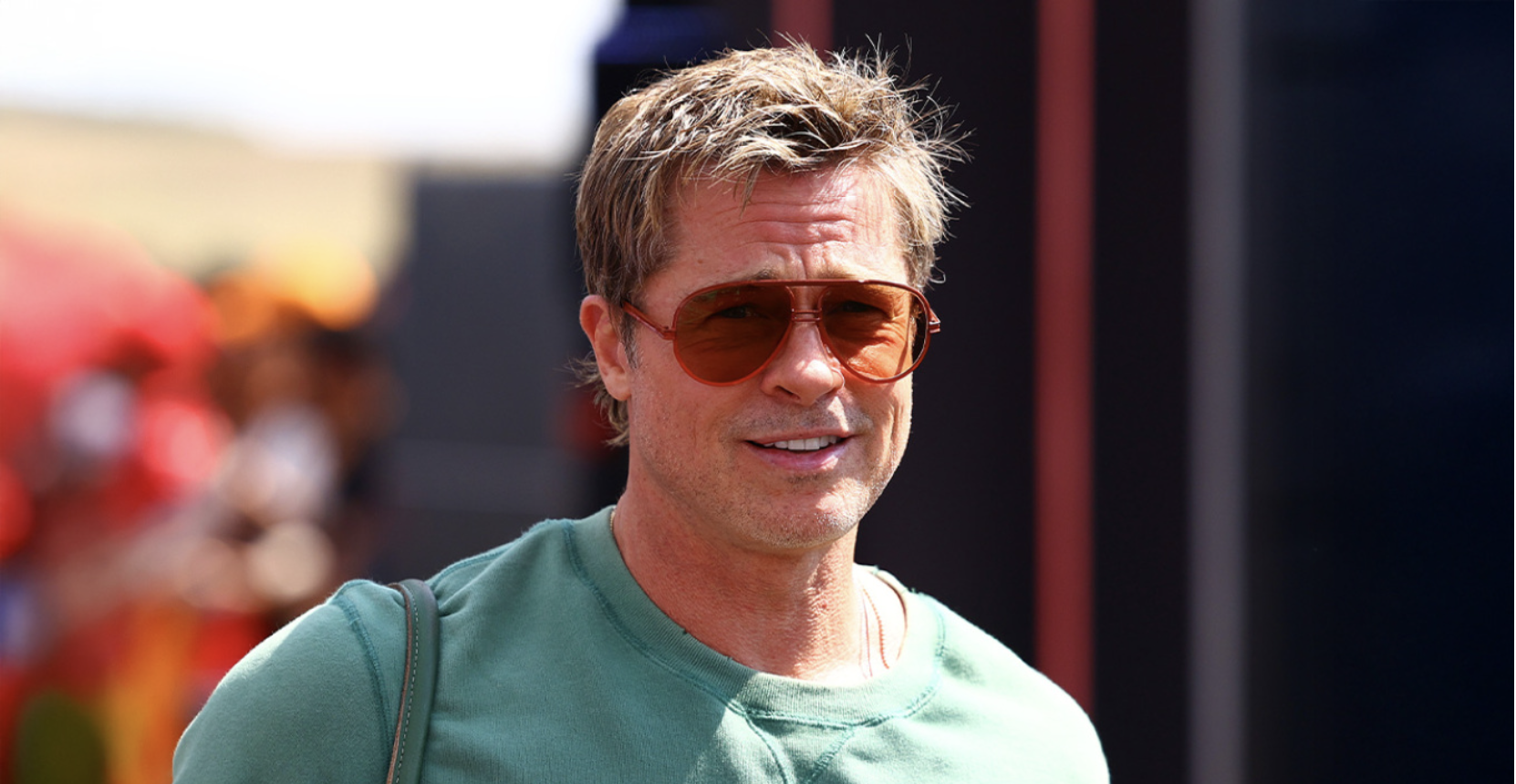Yamaha’s Motobot is not alone, it seems. Behind closed doors, BMW has also been working on autonomous motorcycle technology for the last couple of years. And yesterday, BMW Motorrad released footage of a self-driving R1200GS negotiating its own way around a test track.
The bike can’t start itself off as yet, somebody needs to get it balanced and send it off on its way. But once in motion, it can manage its own throttle, clutch, gears and brakes, read the track in front of it, and steer its own way around.
BMW says it has no interest in creating a riderless bike for the sake of it; the team is using this test platform to understand motorcycle riding dynamics better, so it can explore what kind of active safety measures might make sense on future bikes.

“The prototype,” says team member Stefan Hans, “helps us to expand our knowledge about the vehicle’s dynamics, so that we can classify the rider’s behavior, and determine if a future situation will become dangerous or not. If so, we can inform, warn, or intervene directly.
“In this project, it was not our goal to develop a fully automated motorcycle. We want to improve motorcycle safety. It’s the proof that the underlying dynamic model is detailed enough to cope with the whole riding dynamics, so we can use that knowledge to develop further comfort and safety systems.”

Certainly, the car world has benefited greatly from systems like automatic emergency braking, lane keeping assist, and all manner of clever blind spot and cross traffic alert systems. But many bikers consider themselves a different breed, more tuned in to what’s happening on the road as a matter of necessity and survival.
This won’t halt the march of progress. KTM and Ducati have already begun showing off their radar-assisted adaptive cruise technology, with the KTM system already beginning to test a bit of gentle automatic braking.

It’ll be interesting to see what kinds of rider assist technology emerge from this autonomous BMW program.
Check it out in action in the video below.
Source: newatlas
Ask me anything
Explore related questions





